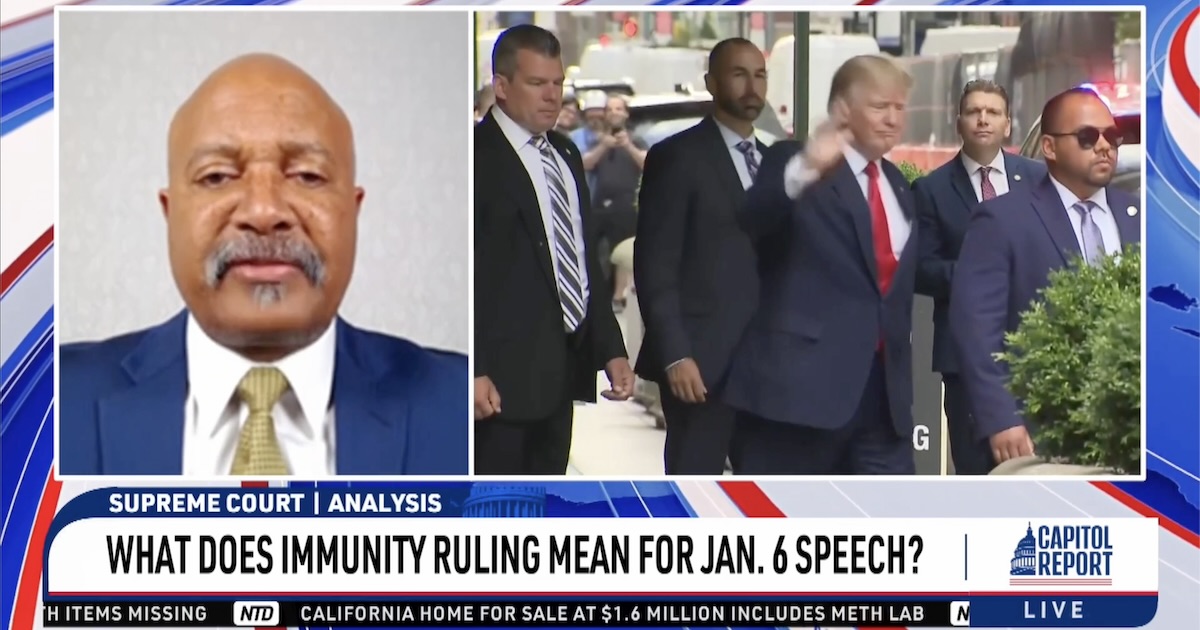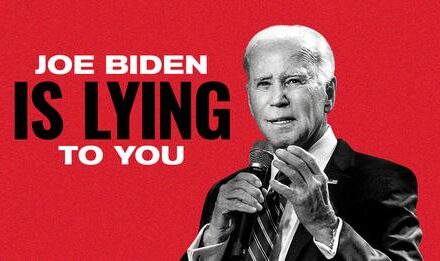LTP News Sharing:
What does the U.S. Supreme Court’s recent ruling on presidential immunity mean for former President Trump?
Project 21 Ambassador Curtis T. Hill, Jr., who once served as Indiana’s attorney general, discussed this and other legal issues with Steve Lance on NTD’s “Capitol Report.”
First they discussed the immediate ramifications of the immunity decision in terms of Trump’s criminal case in New York. Curtis said:
The case in New York, in my estimation, was always shaky anyway in terms of the initial effort by the Manhattan DA. What we’re seeing now is [that] the Supreme Court has determined that the president of the United States enjoys immunity for conduct that’s official in its nature. So I think the Trump team is — rightfully so — requesting time to consider what that new Supreme Court holding does potentially for the case in New York, setting aside some time to determine if any of the acts or conduct in which the allegations that were brought forth could be considered official and therefore qualify as immune from prosecution.
Curtis and Steve then discussed whether the SCOTUS immunity decision affects Trump’s potential liability over the events of January 6, 2021. Curtis said:
The case needs to go back for further evaluation or analysis as to what is official conduct. The immunity is very clear that if it’s a constitutional authority or official conduct, the president is immune from any prosecution, so someone may have to determine what is the definition of official conduct.
And for the executive branch or any government official that can sometimes be tricky, because there are clearly things that the president does that are absolutely official conduct — executing/signing a bill into law, things that only he can do. But there are other things that are sort of interesting. The president of the United States is always the president. You don’t shut down at 5:00 or 10:00; it’s an around-the-clock position. Even when you’re engaged in political activity, that can be considered official capacity.
Curtis also explained why the Supreme Court’s recent Chevron decision was such an important one for the future of the United States:
The original Chevron doctrine has been one of the worst things that could have happened in American jurisprudence, because it empowered or emboldened federal agencies to interpret their own rules without court intervention. And it’s been a real sticking point for the last 40+ years.
Alleviating the Chevron rule from the system is one of the best things that could happen in terms of being able to control that beast that we call a bureaucracy. It means that there can be court intervention to determine what the appropriate rules are, and it requires Congress to do his job.
We don’t want Congress to be overloaded with minutiae – which is part of what the original Chevron decision was all about, making sure that Congress didn’t have to be involved in every little nook and cranny of the legislative process — but it has gone so far that the unelected bureaucrats have been controlling the shots for a number of years. So now we get some parity back into the system to make sure that we don’t have bureaucracies running amok.
It also has impacted the states. Even though the Chevron decision was a federal case, the implication was that state agencies were able to provide their own direction short of court intervention.
So it’s a very solid ruling for those of us who believe in freedom.
Author: The National Center







